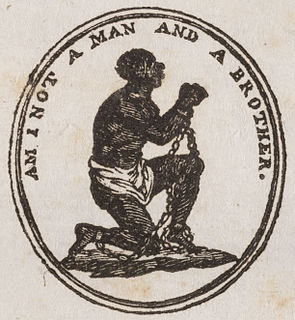
United States appellate procedure involves the rules and regulations for filing appeals in state courts and federal courts. The nature of an appeal can vary greatly depending on the type of case and the rules of the court in the jurisdiction where the case was prosecuted. There are many types of standard of review for appeals, such as de novo and abuse of discretion. However, most appeals begin when a party files a petition for review to a higher court for the purpose of overturning the lower court's decision.
A precedent is a principle or rule established in a previous legal case that is either binding on or persuasive for a court or other tribunal when deciding subsequent cases with similar issues or facts. Common-law legal systems place great value on deciding cases according to consistent principled rules, so that similar facts will yield similar and predictable outcomes, and observance of precedent is the mechanism by which that goal is attained. The principle by which judges are bound to precedents is known as stare decisis. Common-law precedent is a third kind of law, on equal footing with statutory law and subordinate legislation.
In law, a judgment, also spelled judgement, is a decision of a court regarding the rights and liabilities of parties in a legal action or proceeding. Judgments also generally provide the court's explanation of why it has chosen to make a particular court order.
Case law is the collection of past legal decisions written by courts and similar tribunals in the course of deciding cases, in which the law was analyzed using these cases to resolve ambiguities for deciding current cases. These past decisions are called "case law", or precedent. Stare decisis—a Latin phrase meaning “let the decision stand”—is the principle by which judges are bound to such past decisions. These judicial interpretations are distinguished from statutory law, which are codes enacted by legislative bodies, and regulatory law, which are established by executive agencies based on statutes. In some jurisdictions, case law can be applied to ongoing adjudication; for example, criminal proceedings or family law.
A brief is a written legal document used in various legal adversarial systems that is presented to a court arguing why one party to a particular case should prevail.
Prejudice is a legal term with different meanings when used in criminal, civil, or common law. In legal context "prejudice" differs from the more common use of the word and thus has specific technical meanings.
Obiter dictum is the Latin phrase meaning "by the way", that is, a remark in a judgment that is "said in passing". It is a concept derived from English common law, whereby a judgment comprises only two elements: ratio decidendi and obiter dicta. For the purposes of judicial precedent, ratio decidendi is binding, whereas obiter dicta are persuasive only.
In law, a concurring opinion is in certain legal systems a written opinion by one or more judges of a court which agrees with the decision made by the majority of the court, but states different reasons as the basis for his or her decision. When no absolute majority of the court can agree on the basis for deciding the case, the decision of the court may be contained in a number of concurring opinions, and the concurring opinion joined by the greatest number of judges is referred to as the plurality opinion.

An opinion is a judgment, viewpoint, or statement that is not conclusive, rather than facts which are true statements.
Ratio decidendi is a Latin phrase meaning "the reason" or "the rationale for the decision". The ratio decidendi is "the point in a case that determines the judgement" or "the principle that the case establishes".
In law, to distinguish a case means a court decides the legal reasoning of a precedent case will not wholly apply due to materially different facts between the two cases. If distinguishing, two formal constraints must be apparent in the judgment of the later court: the expressed factors or relevant considerations in the ratio of the earlier case must be re-used or stated to apply but for an additional fact not envisaged by the earlier court, and the ruling in the later case must not expressly doubt (criticise) the result reached in the precedent case.
Ex tempore is a legal term that means 'at the time'. A judge who hands down a decision in a case soon or straight after hearing it is delivering a decision ex tempore. Another way a judge may deliver a decision is to reserve their decision and deliver it later in written form. An ex tempore judgment, being off the cuff, does not entail the same preparation as a reserved decision. Consequently, it will not be thought out to the same degree.
R v Hinks [2000] UKHL 53 is an English case heard by the House of Lords on appeal from the Court of Appeal of England and Wales. The case concerned the interpretation of the word "appropriates" in the Theft Act 1968. The relevant statute is as follows:

Williams v Natural Life Health Foods Ltd [1998] UKHL 17 is an important English tort law, company law and contract law case. It held that for there to be an effective assumption of responsibility, there must be some direct or indirect conveyance that a director had done so, and that a claimant had relied on the information. Otherwise only a company itself, as a separate legal person, would be liable for negligent information.

Slade's Case was a case in English contract law that ran from 1596 to 1602. Under the medieval common law, claims seeking the repayment of a debt or other matters could only be pursued through a writ of debt in the Court of Common Pleas, a problematic and archaic process. By 1558 the lawyers had succeeded in creating another method, enforced by the Court of King's Bench, through the action of assumpsit, which was technically for deceit. The legal fiction used was that by failing to pay after promising to do so, a defendant had committed deceit, and was liable to the plaintiff. The conservative Common Pleas, through the appellate court the Court of Exchequer Chamber, began to overrule decisions made by the King's Bench on assumpsit, causing friction between the courts.

Errors as to precedent facts, sometimes called jurisdictional facts, in Singapore administrative law are errors committed by public authorities concerning facts that must objectively exist or not exist before the authorities have the power to take actions or make decisions under legislation. If an error concerning a precedent fact is made, the statutory power has not been exercised lawfully and may be quashed by the High Court if judicial review is applied for by an aggrieved person. The willingness of the Court to review such errors of fact is an exception to the general rule that the Court only reviews errors of law.

Administrative law in Singapore is a branch of public law that is concerned with the control of governmental powers as exercised through its various administrative agencies. Administrative law requires administrators – ministers, civil servants and public authorities – to act fairly, reasonably and in accordance with the law. Singapore administrative law is largely based on English administrative law, which the nation inherited at independence in 1965.

Illegality is one of the three broad headings of judicial review of administrative action in Singapore, the others being irrationality and procedural impropriety. To avoid acting illegally, an administrative body or public authority must correctly understand the law regulating its power to act and to make decisions, and give effect to it.

Somerset v Stewart (1772) 98 ER 499 is a judgment of the English Court of King's Bench in 1772 relating to the right of an enslaved person on English soil not to be forcibly removed from the country and sent to Jamaica for sale. Lord Mansfield decided that:
The state of slavery is of such a nature that it is incapable of being introduced on any reasons, moral or political, but only by positive law [statute], which preserves its force long after the reasons, occasions, and time itself from whence it was created, is erased from memory. It is so odious, that nothing can be suffered to support it, but positive law. Whatever inconveniences, therefore, may follow from the decision, I cannot say this case is allowed or approved by the law of England; and therefore the black must be discharged.
Yarborough v. Alvarado, 541 U.S. 652 (2004), is a United States Supreme Court case in which the Court declined to overturn a state court's conclusion that a minor was not in custody for Miranda purposes during his police interview. Michael Alvarado helped his friend Paul Soto steal a truck in Santa Fe Springs, California. The truck owner was killed by Soto during the robbery and Alvarado was convicted of second-degree murder for his role in the crime. The evidence for Alvarado's conviction was primarily based on statements given by Alvarado during a two-hour police interrogation that occurred when Alvarado's parents brought him to the police station. Alvarado was 17 years old and was not read his Miranda rights before questioning. During Alvarado's murder trial in a state court, motions to suppress the statements given by Alvarado were denied on the ground that Alvarado was not in police custody at the time of the interrogation and thus did not have to be read his Miranda rights. Alvarado appealed his conviction, claiming that the determination that he was not in custody was incorrect because the courts did not take his age into account.